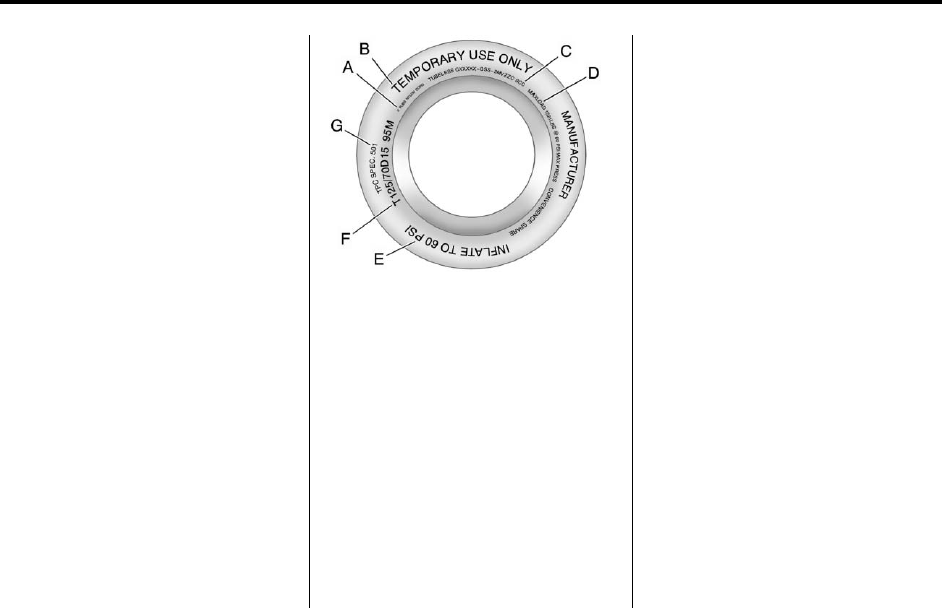
Vehicle Care 10-41
(E) Tire Ply Material: The type
of cord and number of plies in
the sidewall and under the tread.
(F) Uniform Tire Quality
Grading (UTQG)
: Tire
manufacturers are required to
grade tires based on three
performance factors: treadwear,
traction, and temperature
resistance. For more information
see Uniform Tire Quality
Grading
on page 10‑56
.
(G) Maximum Cold Inflation
Load Limit
: Maximum load
that can be carried and the
maximum pressure needed to
support that load.
Compact Spare Tire Example
(A) Tire Ply Material: The type
of cord and number of plies in
the sidewall and under the tread.
(B) Temporary Use Only
: The
compact spare tire or temporary
use tire has a tread life of
approximately 5 000 km
(3,000 miles) and should not be
driven at speeds over 105 km/h
(65 mph). The compact spare
tire is for emergency use when a
regular road tire has lost air and
gone flat. If your vehicle has a
compact spare tire, see
Compact Spare Tire
on
page 10‑67
and If a Tire Goes
Flat
on page 10‑60
.
(C) Tire Identification Number
(TIN)
: The letters and numbers
following the DOT (Department
of Transportation ) code is the
Tire Identification Number
(TIN). The TIN shows the
manufacturer and plant code,
tire size, and date the tire was
manufactured. The TIN is
molded onto both sides of the
tire, although only one side may
have the date of manufacture.
(D) Maximum Cold Inflation
Load Limit
: Maximum load
that can be carried and the
maximum pressure needed to
support that load.


















